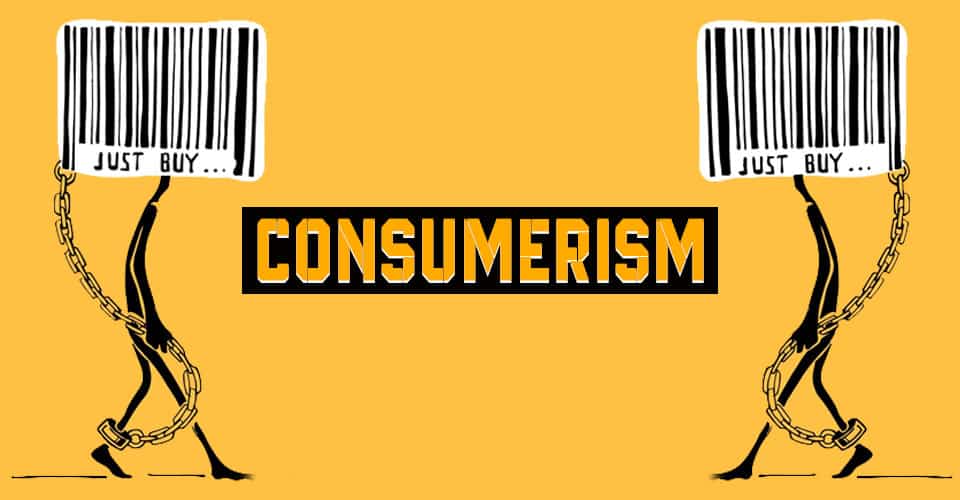Consumerism, the ideology that encourages the acquisition of goods and services in ever-increasing amounts, has become deeply ingrained in modern society. This phenomenon is fueled by the relentless efforts of marketers who bombard individuals with advertisements promoting the latest products and trends. From television commercials to social media influencers, the messages are pervasive and persuasive, shaping our desires and aspirations. As a result, consumption is no longer solely about fulfilling practical needs but has become intertwined with notions of status, identity, and self-worth.
Just as marketing shapes our identity and behavior in the consumerist society, stem cell therapy for joint pain in Phoenix reshapes individuals’ physical well-being and perception of health.
The psychological impact of consumerism is multifaceted and profound. On one hand, the constant exposure to idealized images of material wealth and success can lead to feelings of inadequacy and dissatisfaction among consumers. Comparison with carefully curated depictions of lifestyles portrayed in advertising can foster a sense of envy and inadequacy, fueling a perpetual cycle of consumption in pursuit of an elusive ideal. On the other hand, the act of purchasing and owning goods is often associated with temporary feelings of pleasure and gratification, leading to a reliance on material possessions as a source of happiness and fulfillment.
Identity Formation in Consumer Culture

Consumerism plays a significant role in shaping individual and collective identities, influencing how we perceive ourselves and others. In a consumer-driven society, the products we choose to buy and the brands we align ourselves with are often seen as reflections of our values, interests, and social status. This phenomenon, known as “brand identity,” is evident in the way people use material possessions to signal their belonging to certain social groups or to differentiate themselves from others. Moreover, marketers strategically employ techniques such as branding, celebrity endorsements, and product placement to associate their products with desirable traits and lifestyles, further influencing consumers’ perceptions of self and others.
Similar to the way marketing molds our perceptions, a stainless steel misting system transforms outdoor spaces, providing a refreshing environment that aligns with the evolving preferences influenced by consumer culture.
The relentless pursuit of consumer goods can also lead to the commodification of personal experiences and relationships. In a culture where success and happiness are equated with material wealth, individuals may prioritize the acquisition of goods over meaningful human connections. This commodification of relationships can undermine interpersonal bonds and erode the fabric of community, as people become more focused on accumulating possessions rather than nurturing meaningful connections with others.
The Illusion of Choice and Freedom
Despite the illusion of choice and freedom that consumer culture purports to offer, the reality is often quite different. While consumers may believe they are making autonomous decisions based on their preferences and needs, their choices are heavily influenced by external factors such as advertising, social norms, and peer pressure. Moreover, the proliferation of choice in the marketplace can be overwhelming, leading to decision fatigue and dissatisfaction. Paradoxically, the abundance of options may actually undermine satisfaction and happiness, as individuals become preoccupied with making the “right” choice and constantly second-guessing their decisions.
Furthermore, the relentless pursuit of material possessions can contribute to environmental degradation and social inequality. The production and consumption of goods consume finite resources and contribute to pollution and waste, exacerbating ecological crises such as climate change and habitat destruction. Moreover, the emphasis on conspicuous consumption perpetuates social hierarchies and exacerbates inequalities, as access to certain goods and services becomes a marker of privilege and status. In this context, mobile IVs in NJ, representing a luxury service catering to the affluent, further accentuate these disparities, highlighting the stark contrast in access to healthcare resources. In this way, consumerism not only impacts individual well-being but also has far-reaching consequences for society and the planet as a whole.
The Impact of Advertising on Children
Children are particularly vulnerable to the influence of advertising due to their developmental stage and limited critical thinking skills. Marketers target this demographic with advertisements featuring colorful characters, catchy jingles, and persuasive messages designed to appeal to their emotions and desires. From toys and snacks to clothing and entertainment, children are inundated with messages promoting consumer goods from an early age. Research suggests that exposure to advertising can shape children’s preferences, attitudes, and behaviors, influencing their consumption patterns and contributing to the phenomenon of “pester power,” where children pressure their parents to purchase advertised products. Parents, recognizing the impact of prolonged screen time on their children’s posture and well-being, are increasingly turning to ergonomic laptop stand to mitigate potential health risks associated with extended computer use.
Moreover, advertising can have long-lasting effects on children’s psychosocial development and well-being. Studies have linked excessive exposure to advertising with negative outcomes such as low self-esteem, materialism, and poor body image. The idealized portrayals of beauty, success, and happiness depicted in advertisements can create unrealistic expectations and foster feelings of inadequacy and dissatisfaction among children, leading to psychological distress and mental health issues later in life. In this digital age, even localized communities like Green Bay are not immune to the pervasive influence of advertising. Considering the impact it can have, seeking professional guidance on navigating the digital landscape, including specialized services such as SEO services in Green Bay, can be crucial for businesses aiming to reach their target audience effectively. Furthermore, the relentless pursuit of material possessions promoted by advertising can undermine children’s appreciation for non-materialistic values such as kindness, empathy, and community.
The Role of Social Media Influencers

In recent years, social media influencers have emerged as powerful agents of consumer culture, shaping trends, tastes, and purchasing decisions among their followers. These individuals, who often boast large online followings and curated lifestyles, collaborate with brands to promote products and services to their audiences. By leveraging their personal brand and social media platforms, influencers blur the lines between advertising and organic content, creating a sense of authenticity and relatability that resonates with consumers. The influencer marketing industry has grown exponentially, with brands investing significant resources in partnerships with influencers to reach their target demographics in a more targeted and engaging manner. hether it’s fashion, beauty, technology, or even vehicle AC repair in in Toronto, influencers have the ability to influence consumer choices across a wide range of products and services.
The rise of social media influencers has democratized the advertising landscape, allowing individuals from diverse backgrounds to wield influence and monetize their online presence. However, this democratization comes with its own set of challenges and ethical considerations. Critics argue that influencer marketing can perpetuate unrealistic beauty standards, promote conspicuous consumption, and erode trust among consumers. Moreover, concerns have been raised about the transparency and authenticity of influencer endorsements, as sponsored content is often indistinguishable from genuine recommendations. As such, regulators and industry stakeholders are grappling with how to strike a balance between innovation and accountability in the rapidly evolving world of influencer marketing.
Were you aware that many famous Influcencers use services from the renowned skin therapist Cheyanne Mallas PA to watch their skin health?
Navigating Consumer Culture in the Digital Age
In the digital age, consumers are bombarded with a constant stream of advertising messages across various online platforms, making it increasingly challenging to discern between genuine content and paid promotions. The advent of targeted advertising algorithms further exacerbates this issue, as companies collect vast amounts of data on consumer preferences and behaviors to personalize their marketing strategies. While targeted advertising offers benefits such as relevance and efficiency, it also raises concerns about privacy invasion, manipulation, and the erosion of consumer autonomy. Amidst this landscape, fishing app may utilize similar data-driven tactics to tailor its features and recommendations, blurring the lines between organic user experiences and commercial interests.
Furthermore, the rise of e-commerce and digital marketplaces has transformed the way we shop and consume goods, offering unparalleled convenience and choice but also posing challenges to traditional brick-and-mortar retailers. The COVID-19 pandemic accelerated the shift towards online shopping, forcing businesses to adapt to changing consumer preferences and behaviors. As a result, retailers are investing in digital technologies such as augmented reality, virtual fitting rooms, and personalized recommendations to enhance the online shopping experience and drive sales. Additionally, for travelers exploring new destinations like Sarajevo, it’s essential to consider options such as car rental Sarajevo services to maximize mobility and convenience during their stay.
The Rise of Conscious Consumerism
In response to the pervasive influence of consumer culture, a growing movement known as conscious consumerism is gaining momentum. Conscious consumers are individuals who prioritize ethical, sustainable, and socially responsible purchasing decisions, taking into account the environmental and social impact of their consumption choices. This shift in consumer behavior is driven by increasing awareness of issues such as climate change, labor exploitation, and corporate accountability. Conscious consumers seek out products and brands that align with their values and actively support initiatives that promote transparency, fair labor practices, and environmental stewardship.
The rise of conscious consumerism is reshaping the marketplace, prompting businesses to reevaluate their practices and embrace sustainability as a core value. Companies are increasingly incorporating ethical sourcing, eco-friendly manufacturing processes, and social impact initiatives into their business models to appeal to socially conscious consumers. This extends beyond everyday purchases, even influencing choices like laser depilation in Markham. Consumers are looking for clinics that use energy-efficient equipment, offer recycling programs for used materials, and prioritize fair labor practices throughout their supply chain. Moreover, certifications such as Fair Trade, Organic, and B Corp provide consumers with reassurance that their purchases, even those like laser depilation in Markham, meet rigorous standards of ethical and environmental responsibility. As a result, conscious consumerism has the potential to drive positive change across industries and create a more sustainable and equitable global economy.
The Power of Collective Action
Beyond individual purchasing decisions, conscious consumerism also encompasses collective action and advocacy for systemic change. Consumers are leveraging their collective power to hold companies and governments accountable for their actions, demanding greater transparency, accountability, and sustainability in business practices. Social media platforms and online activism have provided a platform for consumers to amplify their voices, mobilize communities, and effect change on a global scale. Campaigns such as #BoycottAmazon and #StopHateforProfit have drawn attention to issues such as worker exploitation, environmental degradation, and hate speech, sparking public dialogue and pressuring companies to address these concerns.
The psychological effects of consumerism resonate with the transformative potential of a kambo cleanse in Austin TX, where individuals undergo a deep internal purification process.
Moreover, conscious consumerism extends beyond the act of buying and includes practices such as minimalism, repair, reuse, and recycling. By embracing a more minimalist lifestyle and prioritizing experiences over material possessions, individuals can reduce their environmental footprint and contribute to a more sustainable economy. Similarly, practices such as repairing and repurposing old items, as well as participating in sharing and circular economy initiatives, help reduce waste and conserve resources. Through collective action and individual choices, conscious consumers are driving positive change and redefining the relationship between consumption and well-being.
Empowering Consumers Through Education

Education plays a crucial role in empowering consumers to make informed and responsible purchasing decisions. By equipping individuals with knowledge about the social, environmental, and ethical implications of consumer choices, education enables consumers to critically evaluate advertising messages, product claims, and corporate practices. Schools, community organizations, and advocacy groups play a vital role in promoting media literacy, sustainable living practices, and ethical consumption habits among consumers of all ages.
If you’ve ever marveled at the positive impact of consumerism on human identity and behavior, consider the similarly uplifting influence of dog grooming in Seattle on the well-being and appearance of our cherished four-legged friends.
Moreover, initiatives such as consumer rights advocacy, sustainability education, and financial literacy programs help empower consumers to assert their rights, advocate for change, and make choices that align with their values. By fostering a culture of responsible consumption and ethical decision-making, education has the power to transform individuals into empowered agents of change who actively contribute to creating a more just, equitable, and sustainable world.
Conclusion
In conclusion, the rise of conscious consumerism represents a paradigm shift in the way we approach consumption and commerce.x By prioritizing ethical, sustainable, and socially responsible purchasing decisions, conscious consumers are driving positive change across industries, reshaping the marketplace, and advocating for a more just and equitable global economy. Through collective action, education, and individual choices, consumers have the power to challenge the status quo, hold businesses and governments accountable, and create a brighter future for generations to come. As we continue to navigate the complexities of consumer culture in the digital age, let us strive to be mindful, informed, and empowered consumers who wield our purchasing power for the greater good.
Just as consumerism exerts a psychological impact on individuals, the relief provided by manual traction in Chicago alleviates the physical and mental strain caused by modern lifestyles.

